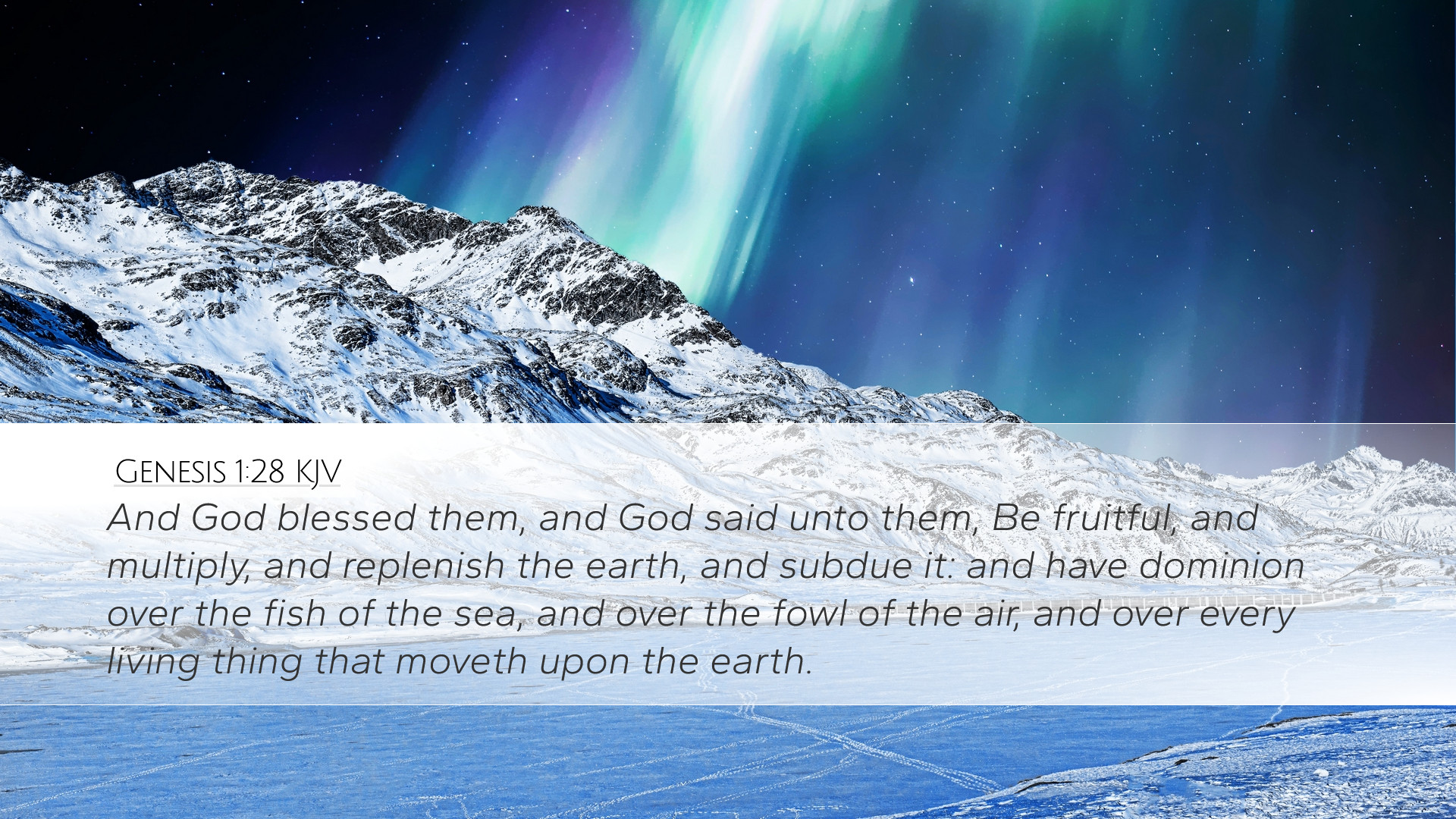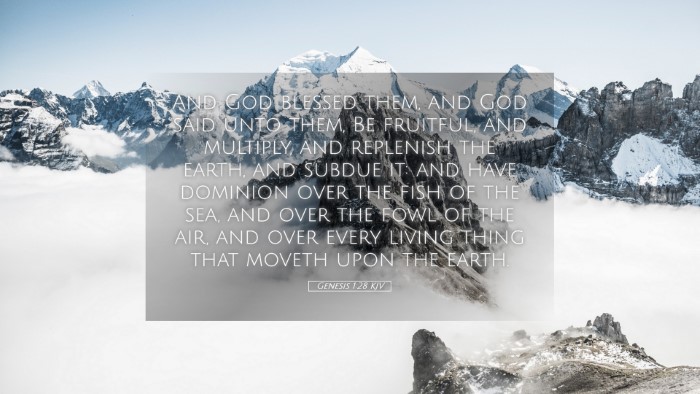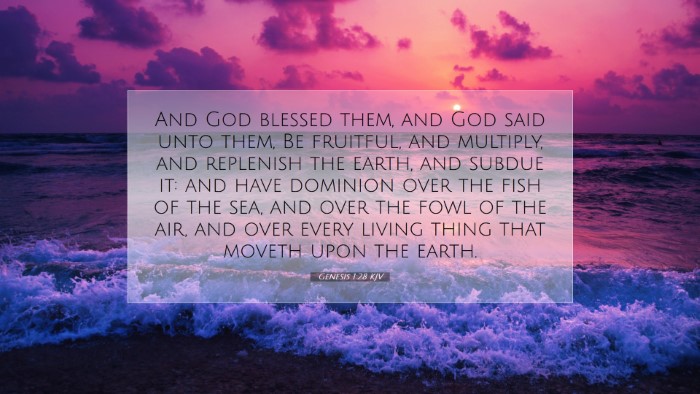Commentary on Genesis 1:28
Verse: "God blessed them, and God said to them, 'Be fruitful and multiply and fill the earth and subdue it, and have dominion over the fish of the sea and over the birds of the heavens and over every living thing that moves on the earth.'
Introduction
This passage forms a critical part of the creation narrative, representing God's direct instruction and command to humanity. It encapsulates the divine blessing upon mankind, a mandate to procreate, steward the earth, and govern its creatures. Various public domain commentaries provide a wealth of insights into the theological, moral, and practical implications of this verse.
The Divine Blessing
Matthew Henry emphasizes the significance of God's blessing upon humanity. He asserts that this blessing is both an expression of God's favor and the foundation upon which human flourishing is built. In the creation story, God's blessings are closely linked with the mandate given to man, which suggests that fulfilling this command is inherently tied to enjoying God's blessing.
Albert Barnes further elucidates that the act of blessing serves to empower humanity for the tasks ahead, indicating that the call to be fruitful is not merely about procreation but encompasses a broader understanding of growth and development within creation.
The Mandate: Be Fruitful and Multiply
The first part of the command, "Be fruitful and multiply," has profound implications. Adam Clarke interprets this as an exhortation to fill the earth with descendants, reflecting God's desire for humanity to flourish. This reflects not just biological reproduction but also the cultivation of morals, character, and godliness in future generations.
- Procreation: The commitment to have children is viewed as a divine directive, suggesting that family and community are central to God's created order.
- Fulfilling the Earth: This phrase indicates a responsibility to populate the earth in a way that reflects divine order, creating societies that honor God.
- Cultural Mandate: The fruitfulness extends beyond the family to broader society and culture, necessitating the creation of communities that exemplify God's character.
Subdue the Earth and Exercise Dominion
The second part of the divine command instructs humanity to "subdue the earth" and "have dominion." This calls for stewardship and governance over creation. Matthew Henry points out that this subduing is not a license for exploitation but rather a call to responsible stewardship. God entrusts the earth to humanity, requires accountability in how creation is treated.
Albert Barnes observes that dominion implies authority and responsibility, whereby humanity is to manage the earth with care and respect, reflecting the nature of God as creator.
Theological Considerations
- The Nature of Man: According to Adam Clarke, this verse illustrates humanity's unique position in the created order, endowed with reason and moral agency.
- Image of God: The capacity to create, govern, and steward creation reflects the divine image in humanity, framing the cultural mandate within a theological context.
- Environmental Responsibility: The modern implications of this verse highlight the urgency for ecological stewardship, reminding believers of their responsibility to protect and preserve God’s creation.
Practical Applications
For pastors, students, and theologians, Genesis 1:28 provides ample material for reflection and application:
- Family Ministry: This verse underlines the importance of family in God’s plan, encouraging church leaders to promote strong family structures.
- Community Engagement: The aspect of filling the earth with God-honoring cultures invites believers to engage with their societies, striving for justice, mercy, and truth.
- Environmental Ethics: Emphasizing stewardship over exploitation urges reflection on how contemporary issues like climate change should be approached from a theological viewpoint.
Conclusion
Genesis 1:28 encapsulates profound truths about identity, purpose, and responsibility. The mandate to be fruitful, multiply, and exercise dominion provides a comprehensive framework for understanding humanity's role within creation. As such, this passage challenges each generation to fulfill God's purpose with reverence and responsibility, thereby embodying the principles foundational to Christian faith and practice.


